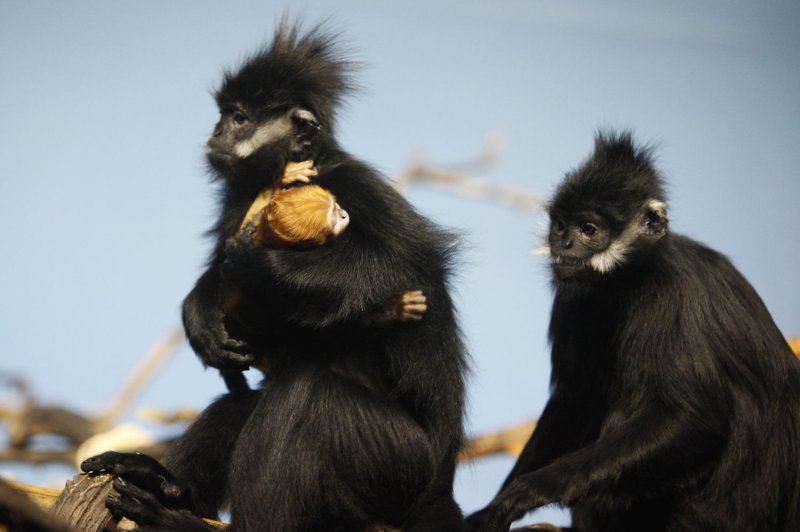A pair of Francois' langurs and their infant. The species, native to South China, is one of many primate species whose population is on the decline. File photo by Brian Kersey/UPI |
License Photo
Jan. 19 (UPI) -- More than 60 percent of Earth's non-human primate species are now facing the threat of extinction. An international team of biologists and conservationists have sounded the alarm in a new paper published this week in the journal Science Advances.
"This is an impending crisis that requires biologists and environmentalists to come together with economists, politicians, and policymakers," Eduardo Fernandez-Duque, Yale University biological anthropologist, said in a news release. "This is not only a scientific issue. This is a global problem, one that requires global collaboration."
The worsening plight of primates is driven largely by deforestation in South America, Africa and Asia. Trees are being felled and land is being cleared to make way for farming and mining operations, roads and oil and gas extraction.
As habitat becomes more scarce, primate numbers are shrinking. There are more than 500 primate species on Earth, including apes, galagos, lemurs, lorises, monkeys and tarsiers. Some 75 percent have shrinking populations.
The new paper calls on scientists and conservationists to work with governments, non-profits and businesses to develop sustainable land-use policies and bolster the protection of habitat critical to primates. Not only do primates, the closest human relatives, offer unique insights into the nature of human biology and evolution, they also serve as an integral part of complex and valuable ecosystems like tropical forests.
"In the Neotropics where I work, the area that holds the largest number of primate species in the world, we still have a good chance of saving large pieces of forest," Fernandez-Duque said.















